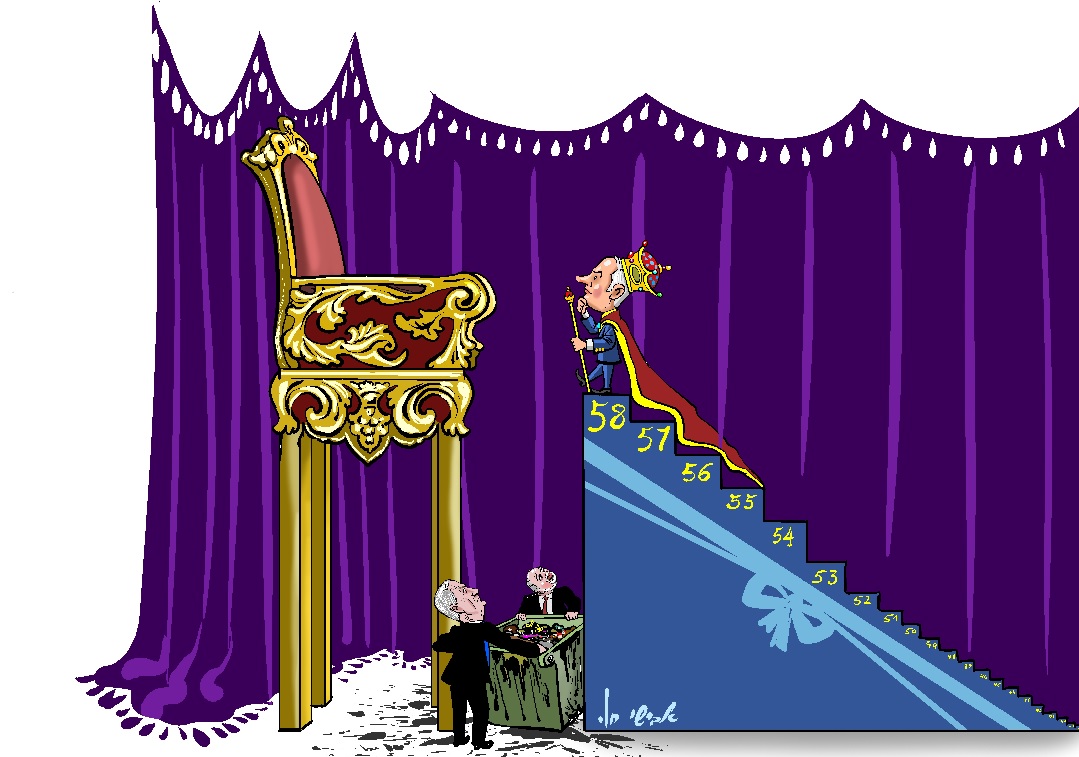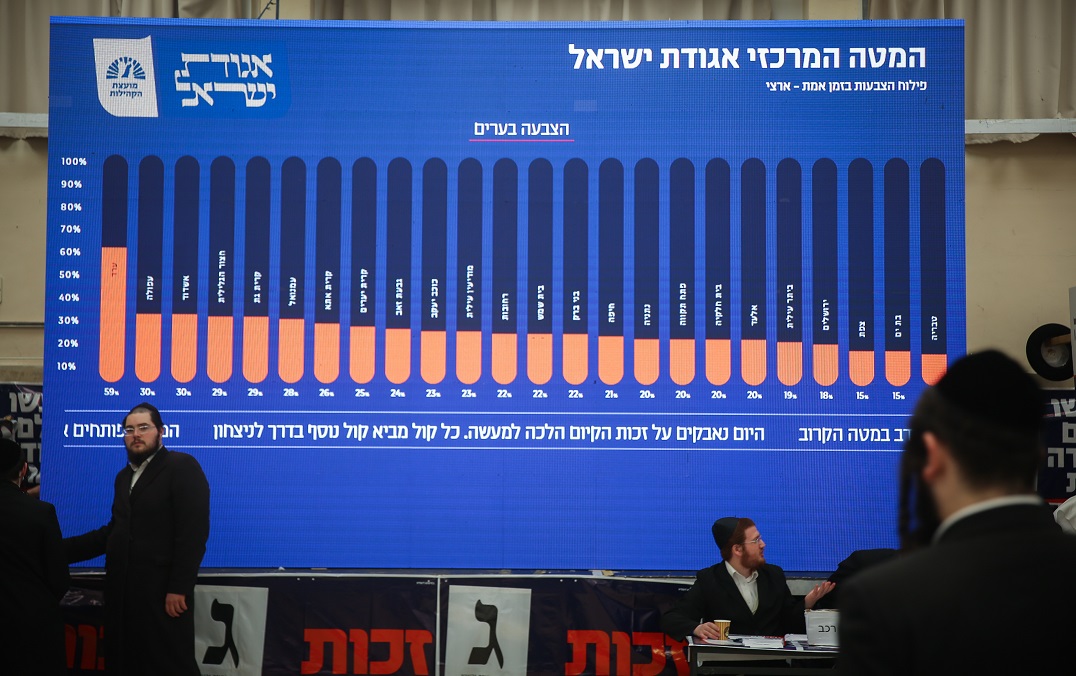Winner and Still Champion?

Stay tuned. It’s only going to get more interesting

Israel’s yearlong electoral deadlock has been broken.
Based on exit polls released Monday night an hour before we went to press, Binyamin Netanyahu and the Likud put enough distance between them and Benny Gantz’s Blue and White Party — to earn the first, best, and probably only crack at forming a narrow governing coalition.
What We Know
While the ink on this week’s edition will be dry long before all the votes are counted, a few things are clear now.
This was a stunning victory for the Likud, which won a record number of votes.
It’s a massive vote of confidence in Binyamin Netanyahu’s continued leadership.
It’s a major vote of no confidence in Israel’s criminal justice system, as voters ignored the three indictments filed against Netanyahu. Bibi will have to fight the charges when his case begins in two weeks in a Jerusalem district court, but the voters have already rendered their not-guilty verdicts.
Predictions that the voting public was election-weary proved wrong. Israelis turned out in droves to ensure they wouldn’t have to go to the polls a fourth time — with actual turnout reaching a peak not seen since 1999.
How They Did It
Bibi and the Likud wisely abandoned their “gevald” campaign, which reeked of lack of confidence. Instead, they used cutting-edge data mining to identify an estimated 300,000 voters who had once voted for the Likud and switched loyalties. While there is no way of knowing how many of them “came home,” I can personally vouch for tens of people who I know voted for the Likud for the first time, knowing that unless Bibi finished first, the chareidim would be relegated to the opposition.
Aside from touting his own accomplishments, Netanyahu ran a cutthroat campaign against his main rival, Benny Gantz, casting aspersions on his character and decision-making capabilities.
Under pressure he never faced in the previous two elections, Gantz succumbed.
Gantz, who ran as if he were Mr. Clean, constantly taunting Bibi for being under indictment, lost some of his luster when news broke that the company he once headed was under investigation for alleged improprieties in its quest to obtain a government contract, even though the former IDF chief of staff is not a suspect.
When Bibi challenged Gantz to a debate and Gantz told Bibi “go debate your witnesses,” he might have gotten a quick laugh, but it also made some voters also realize that Gantz couldn’t punch in the same ring as Bibi.
Then, the weekend before the election, an Israeli television station leaked a recording with one of Gantz’s top aides, who was heard saying that Gantz could not be trusted to take on Iran.
What’s Next
Once all the votes are counted, including those of soldiers on duty and the diplomatic community abroad, which historically favor the center-right parties, Netanyahu will be tasked with forming a coalition.
Potentially, the new coalition should be less unwieldy than the one that collapsed more than a year ago. With about 37 seats, the Likud should only need three other parties — Shas, UTJ, and Yamina — and maybe lure one Knesset member from the opposition to form a 61-seat majority.
The last government that fell apart in December 2018 had two additional parties — Moshe Kahlon’s Kulanu and Avigdor Lieberman’s Yisrael Beiteinu, both of which often made Bibi’s life miserable.
Netanyahu will find Nir Barkat a far more cooperative finance minister than Kahlon. Once dubbed the kingmaker, Lieberman turned into the dealbreaker, and has probably dealt himself out of any new deal.
However, even if Netanyahu patches together a coalition, he is not out of the woods himself.
The Jerusalem District Court will throw out the first ball in his corruption trial on March 17. While this will be confined to initial arguments and formalities, and the case itself will schlep on for years, it will be a major distraction.
Bibi’s bashers may have lost the election, but they will beat down the High Court’s doors seeking a ruling that bars someone under indictment from forming a government coalition.
There is no precedent to bar a prime minister under indictment from heading a government, and only the Knesset can legally remove Bibi, but suffice it to say that Israel’s High Court has not always been shy about setting new precedents.
Could Bibi’s final term in office be an abbreviated one, short-circuited or handcuffed by an activist court? Could Netanyahu himself decide to step down on a high note in another year or two, after accomplishing a lifelong goal, such as neutralizing Iran, annexing swaths of Judea and Samaria, or establishing diplomatic relations with Saudi Arabia?
The wild card in the deck is the US presidential election and how Bibi would deal with a new Democratic administration in the US, if that should come to pass, even if it looks unlikely now.
Stay tuned. It’s only going to get more interesting.
(Originally featured in Mishpacha, Issue 801)
Oops! We could not locate your form.













